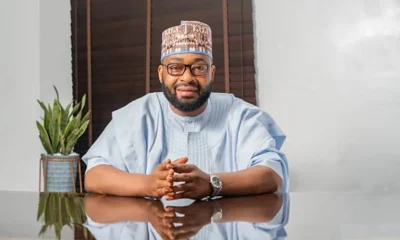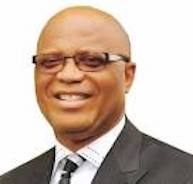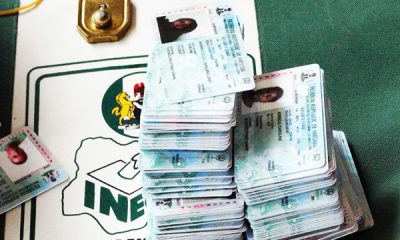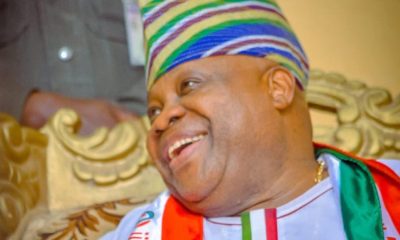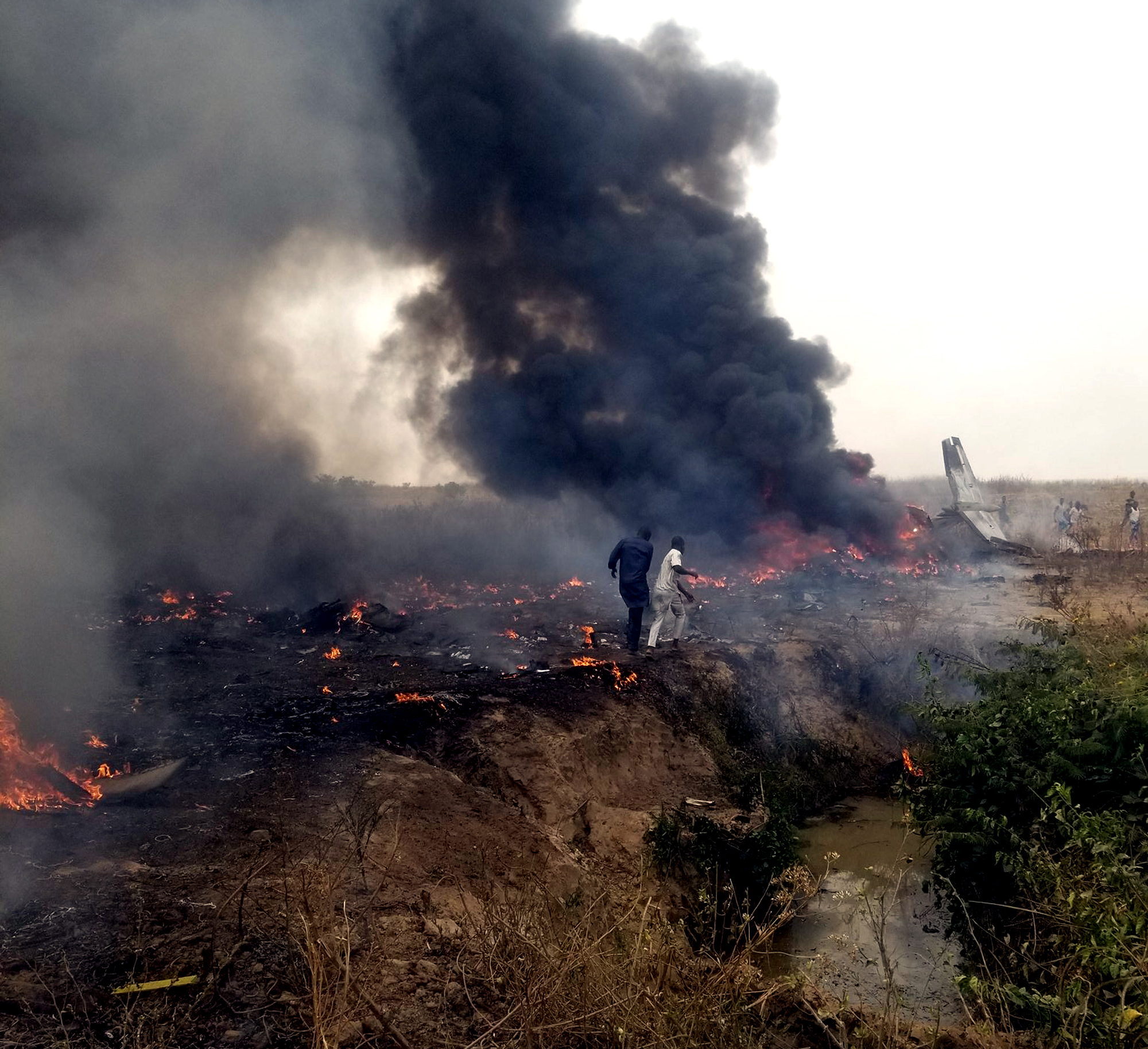COVER
Liz Truss and the Power of People in a Democracy
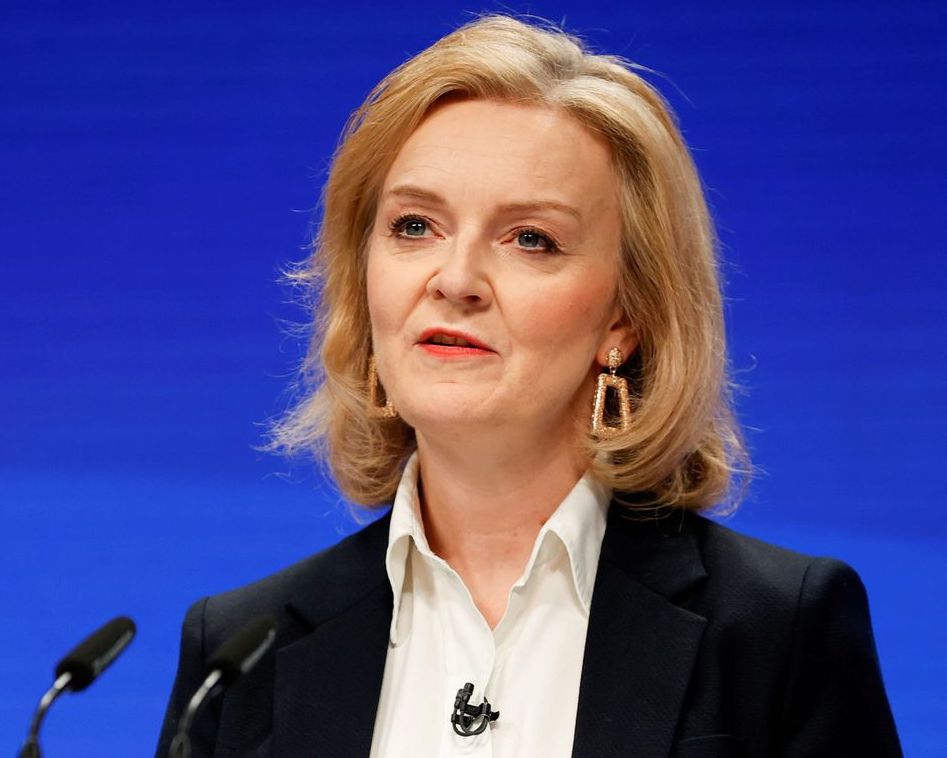
By Dakuku Peterside
“All politics is local” is a popular refrain. However, we cannot deny the interconnected nature of politics. The game of politics is governed by some common unwritten rules, which reign supreme in most societies, no matter the form of democracy they practice.
Like a mathematical equation, there are a few constants in politics – the political sovereignty of the people, which, whenever subverted, would always have consequences; the primacy of the interest of the elite; incompetence in public life has a price; the economy and welfare of the people are crucial to stability, etc. All these factors played critical roles in the fall of the shortest prime ministership of one of the world’s most mature democracies. In the downfall of Liz Truss, are there any lessons for a developing democracy such as Nigeria, which practices a presidential system of government, as distinct from a parliamentary system with its unique nature and peculiar party processes? Here are five lessons and how each of them affects Nigerian political leaders.First, confidence in the government is a no-brainer. Through a popular franchise, the people repose great confidence in their leaders to govern them using the state’s commonwealth. This confidence has a quotient level that is acceptable in all democracies, and immediately it goes below a particular psychological level of acceptance by the people, it elicits a total call for either an immediate change of government through the democratic means available or the voting out of the government in the next election.
Liz Truss lost the confidence of the people. This was evident in her prime ministership having the worst opinion poll rating of any recent UK prime minister. Also, she lost the confidence of her colleagues in the cabinet, parliament, and party, to the extent that she had no option but to resign from office. Her resignation is an indication of the power of the people in a democracy. The people give and take power anytime they lose confidence in their government. In Liz Truss’s case, the parliamentary system allows for a fast response, unlike the presidential system in which the leadership change is more tedious.
In the Nigerian context, the loss of confidence as a political paradigm may not have quick implications, as it did in the UK due to our system of government, but we may still need to consider it thoroughly. Although the typical Nigerian leader cares less about winning and keeping the confidence of citizens beyond the election seasons, such insensitivity is costly in most cases. For instance, the insensitivity of Goodluck Jonathan’s administration to the mass abduction of Chibok girls contributed to the loss of confidence of the people in that government, which eventually led to its downfall. Therefore, losing faith and trust in government inevitably leads to the loss of political power.
Second, worldwide, the litmus test for a government’s popularity and acceptance by the people is the state of the economy. The state of the economy affects voters’ choices and citizens reactions to leaders. Whenever economic decisions go badly, politics reacts. The cost-of-living crisis in the UK, occasioned by rising inflation and the uncontrollable rise of energy costs, put the Brits on edge, and they want a government that will tackle these problems immediately. Unfortunately, Liz Truss’s economic policies could not inspire the confidence of the people and the market that she and her cabinet were in the right direction to solving the problem.
It is significant to note that the pressure came on her, even when she had not implemented the policy in the first instance. The general perception is that tax cut for the rich, social welfare cut, interest rates increase, and other typical conservative economic policies will not work and should not even be tested. The collapse of Liz Truss’s economic policies at birth signalled the lame-duck nature of her government. The desperate reaction of the market saw the pound tumble to its lowest level against the US dollar in over four decades and the near collapse of the London stock market. This spook reaction by the market indicates a lack of confidence in the government and it is interesting that it directly correlates with the collapse of the government, pointing to a more significant link between the market and politics in recent times.
Similarly, although there is a low level of economic enlightenment in Nigeria, however the economic hardship prevalent today has heightened the political awareness of citizens and may affect the choice of Nigerian voters in 2023. Unemployment, high-interest rate, and inflation; if not checked, Nigerians will react soon. A 10% inflation was what sent Truss packing, whereas we are dealing with 20% in Nigeria. The pervading sense of hopelessness and economic quagmire has created an anti-establishment and anti-orthodoxy movement in the political space.
Third, there is a limit to citizens’ tolerance of the excuses and incompetence of leaders. The Truss team were deemed incompetent. And when they made bad decisions, people did not trust them to continue handling the country’s governance. It is obvious that she did not cause the problems she inherited, and many externalities are shaping the rise of economic issues in the UK, chief among them are the economic downturn following COVID-19, the Russian/Ukraine conflict in Europe, and the high cost of energy that elicited high inflation, which is also affecting much of the world.
Yet, although aware of these external influences, UK citizens refused to accept any excuse from Liz Truss for not handling the crisis well. Future conservative prime ministers will have their jobs cut out to stem the tide of economic woes and win the people’s confidence. The UK people are okay with changing prime ministers, like tenancy of Airbnb, until they get a prime minister that is fit for purpose.
Conversely, the tolerance level of Nigerians to excuses is higher than that of the Brits. However, it has limits too, and the general election in 2023 is an opportunity to test that limit. Most Nigerians are tired of excuses and blame from one quarter to another, in tackling insecurity, mismanagement, inflation, corruption, among other issues. It is disheartening to note that floods happened in several places in Nigeria, and we lost 600 persons, with 1.5 million others displaced, and 2.5 million people in need of humanitarian assistance. There has yet to be a definitive action on the disaster from the government. But Joe Biden, in the case of Hurricane Ian in Florida, visited the location with the wife, reassured Americans, mobilised the military for emergency rescue services, announced federal aid, literarily relocated the government seat to Florida, and declared a state of emergency. Unfortunately, the barometer of compassion which government shows in Nigeria is low.
Fourth, the winner-takes-all mentality in politics is counterproductive. Liz Truss appointed her cabinet from her close allies and inner circle, and this phenomenon limited the pool of competent persons she could choose from. In governance, inclusiveness is sine quo non, especially as a tool of managing diversity. The quality of governance is a function of the quality of people in government. There is need to always go for competence, even if the competent person is not a close associate or party member. This cost Liz Truss her premiership.
In Nigeria, we have institutionalised mediocrity for reasons of party loyalty and other sentiments. The Peoples Democratic Party (1999-2015) and All Progressives Congress (2015-date) chose mostly party members for cabinet positions, some with no capacity to envision or execute credible policies. A good mix of party men, competent persons from other parties and non-aligned capable persons is needed to stir Nigeria out of the doldrums. After the 2023 general elections, Nigerians expect the leaders to assemble the best hands to manage the economy. People want results that will impact their lives positively, and only an assemblage of the most competent hands can deliver these results.
Fifth, Liz Truss’s loss of power demonstrates the importance people place on leaders articulating clear, realistic, and workable policies that inspire confidence and belief in the government’s capacity to deliver. Any bogus policies that will not solve the myriad of issues faced by the people are quickly noticed, analysed, and criticised by the media, the market, and other stakeholders. In Liz Truss’s case, the system did not even allow her to implement her policies because it did not have faith in her policies.
In Nigeria today, we have a bourgeoning intelligent populace and a virile media that critically analyse policies and government projects. Social media have democratised political debates and consciousness, especially among the youth, with a concomitant increase in political participation not seen in a generation. Therefore, leaders, should come up with policies that are sustainable and possibly do a dry run of scenarios before activating such policies. Truss got it wrong and paid for it.
The era of religious, ethnic, and primordial sentiments influencing voting is fast fading. Just as in Liz Truss Britain, let the competition of ideas in the common public sphere be the bases of voting choice. Let us have the best ideas and people who put them out in the 2023 elections.
Overall, Nigeria politicians and leaders owe Nigerians clarity of vision and policy, probity and accountability, if they do not want to suffer the fate of Liz Truss. They should articulate sustainable and fit-for-purpose policies to develop Nigeria without overpromising, whilst bearing in mind the economic realities and state of national finance when making promises. They should clearly understand our local and national problems and convince voters on how they will solve them. This is the time for issues-based politics and not trash. Nigerians, like the Brits, are prepared to visit the fate of Liz Truss on any leader or politician that wants to sell us “Trussonomics” in 2023.
COVER
Aliko Dangote Steps Down as Chair of Dangote Sugar

Africa’s richest man, Aliko Dangote has stepped down as Chairman of the Board of Dangote Sugar Refinery Plc, marking the end of a two-decade leadership that transformed the company into a dominant force in Nigeria’s sugar industry.According to a corporate disclosure on Wednesday by the company’s Secretary, Temitope Hassan, Dangote’s retirement from the sugar company’s board takes effect from June 16, 2025Africa’s richest man, Aliko Dangote has stepped down as Chairman of the Board of Dangote Sugar Refinery Plc, marking the end of a two-decade leadership that transformed the company into a dominant force in Nigeria’s sugar industry.
Dangote has chaired the board since 2005, overseeing its significant growth and transformation, including major expansion projects and implementing best practices in corporate governance.“In line with the principles of good corporate governance and succession planning, Dangote Sugar Refinery Plc hereby announces the retirement of our esteemed Chairman of the Board of Directors, Alhaji Aliko Dangote, effective June 16, 2025,” the statement said.Under his leadership, the company launched key Backward Integration Projects (BIP) in Adamawa, Taraba, and Nasarawa States to boost local sugar production and reduce Nigeria’s reliance on imports.Following a “rigorous selection and transition process,” the Board has appointed Mr. Arnold Ekpe, an Independent Non-Executive Director and former Group CEO of Ecobank, as the new chairman.We are pleased to announce the appointment of Mr. Arnold Ekpe as the new Chairman of Dangote Sugar Refinery Plc, effective June 16, 2025,” the statement added.Ekpe brings decades of experience in banking and corporate governance, with a strong track record in leading multinational institutions across Africa.The Board thanked Dangote for his exemplary leadership and unwavering commitment to the company’s vision.“We welcome Mr. Ekpe to his new role and look forward to the next chapter in our company’s journey under his leadership. We also express our deep appreciation to Alhaji Aliko Dangote for his years of outstanding service,” the statement stated. (NAN)COVER
Police Arrests 42 Armed Bandits, Remands 10 Herders over Benue Killings

From Attah Ede, Makurdi
The Benue State Police Command said it has arrested 42 local armed bandits and herders across some communities in the state.The Commissioner of Police in the State, Ifeanyi Emenari, who disclosed this during his maiden media briefing held at the police officer mess Makurdi explained that those arrested were suspected to have been involved in the incessant killings going on in the state.
He pointed out that the armed Fulani herdsmen and bandits will face full trial. According to Police Commissioner Emenari, most of the suspects were arrested upon his assumption of duty in the last one month.He maintained that the command had taken the fight to those responsible for the attacks and killings in Benue communities, stressing that tactical teams have already been drafted to flashpoints across communities in the state.”I was posted to Benue State on the 24/04/2025 and assumed duty on the 26 April 2025. Upon assumption of duty, I step up strategic plans to tackle insecurity in the state.”I visited crisis areas such as Ankpali in Apa, Naka in Gwer West, Ayilamo in Logo, Amafu in Katsina-Ala, Ukum, Agatu, Udei, Yogbo in Guma Local Government Areas, and many others. I had discovered that farmlands have no farmers. Therefore, we have deployed our tactical teams to the areas and are now combing the communities in search of the killers.”We have a mandate to ensure that these communities are safe for the people to go back to their homes and engage in farming activities.”And in the last one month we have arrested 42 armed herdsmen and local bandits from these communities. Most of them have been charged to court.”We also have about 10 herdsmen who have been remanded by the courts in the course of their trial.”Apart from those already charged to court, there are others who are still being investigated and they would be charged to court at the end of investigations.””The command also recovered two AK47 rifles and 21 locally made firearms from the suspects. We had taken the fight to cult gangs in the state “that is why we have not witnessed or recorded cult related attacks in the state in the last one month since I assumed office.The kidnap incidents that happen regularly along Makurdi – Lafia federal highway have reduced drastically as we have arrested those perpetrating the acts and are currently in jail.”We have designed a plan to respond to any distress call within 30mns depending on the locations within the state”, Emenari added.The CP assured that the command would ensure that peace and security is restored to every nook and cranny of the state.He appealed to Benue people particularly in the rural communities and urban centres to cooperate with the police in its task of ensuring the security of lives and property in the state.He commended Governor Hyacinth Alia for his support to the Command, maintaining that his desire to ensure peace and security in the state would be achieved.”The entire governor wanted to make sure farmers go back to their farms and people are provided with adequate security to enable them to go on with their lawful business. We are ready to achieve that with the governor support”, he saidSimilarly, the Benue State Governor, Fr. Hyacinth Alia has reiterated that some politicians and “Religious bandits” are responsible for the needless crisis and aiding the killings of innocent people in the State.The Governor stated this while addressing the Pro-Tinibu group who staged a rally at the Government House Roundabout Makurdi, the state capital as part of the activities marking this year’s June 12 Democracy Day celebration.According to the Governor, “The Religious Bandits are the ones fuelling the insecurity situation being experiencing in the state.”They are doing this through their consistent rhetoric of unverified comments and distortion of facts.”There are some religious leaders I call ‘religious bandits’ who are fueling the bad situation we are experiencing here. And how do they support that, by their rhetoric. If you do not have the facts about Benue and Nigeria, shut up. Don’t just say something because you have the holy altar and oil to speak. Speak what you know and what can be verified.”There are some leaders who are fanning the embers of discord that peace should not return to the State.”We are still faced with insecurity as our people are killed unprovoked. We will take out this total menace and carnage of killings. We will not rest on our oars to ensure that total peace returns to Benue especially in the 6 LGAs that are in the frontline of insecurity.”Am confident that with the support of the President, we are going to get rid of insecurity completely in the State. Some traditional and religious leaders are also marching and fighting with us for peace to return to the State. Our people are suffering a lot and for some of us we have taken an oath to defend them and bring back peace”.”The day calls for sober reflection of how far the state and nation has journeyed in 26 years of uninterrupted democratic government, adding “We must pay tribute to the heroes who fought for democracy and sacrificed their lives for the unity of the country”Those heroes some are with us, others have gone to be with the Lord. They went through a lot including imprisonment, sacrificing for the unity of our country. It is not yet over for us. As we celebrate this day, people of conscience should note that what unites us is greater than what divides us. So, we must think positively for the State and the nation. We should have faith and hope for the nation.”Let us have a change of attitude and a different way of thinking. Let us sacrifice for the state and nation some more. Bring solutions to us and stop putting kerosene on fire. Let us know that Nigeria is our country and we can’t have another one.”Let us be our brother’s keeper. To the youths, a new Benue is possible and you are the new Benue. Let us do our best to ensure that Benue State is for prosperity and is secured. I am with the masses because they are with the people”, he stated.COVER
CBEX Remains Banned in Nigeria, SEC Warns Investors

By Tony Obiechina, Abuja
The Securities and Exchange Commission (SEC) is insisting that CBEX (Crypto Bridge Exchange), operating under the corporate identity of ST Technologies International Ltd, also known as Smart Treasure/Super Technology, remains banned in Nigeria as it has not been registered by the Commission.
SEC in a statement yesterday advised the public to refrain from patronising or transacting any investment related business with the CBEX. The notice read: “The attention of the Securities and Exchange Commission has been drawn to media reports indicating that CBEX (Crypto Bridge Exchange), operating under the corporate identity of ST Technologies International Ltd, also known as Smart Treasure/Super Technology, has resumed operations across Nigeria.“According to the reports, CBEX promoters are demanding $200 from their subscribers with balances above $1,000, and $100 from those with less than $1000 balances before withdrawals can be processed”.The Commission stated “unequivocally that neither CBEX nor ST Technologies International Ltd (or Smart Treasure/Super Technology) is registered with the Commission or authorized to offer investment related services to the Nigerian public.“As a matter of fact, enforcement action has already been initiated against CBEX and its promoters following its previous unauthorized investment activities and the Commission is collaborating with relevant Law Enforcement Agencies to properly investigate CBEX/ST Technologies International Ltd and will take appropriate actions in line with the provisions of the Investments and Securities Act 2025.“The Nigerian public is accordingly advised to refrain from patronising or transacting with CBEX /ST Technologies International Ltd (Smart Treasure or Super Technology) as they risk losing their funds”.The SEC advised investors to verify the registration status of Investment platforms via the Commission’s dedicated portal: www.sec.gov.ng/cmos before transacting, adding that it remains committed to protecting investors and maintaining market integrity.




